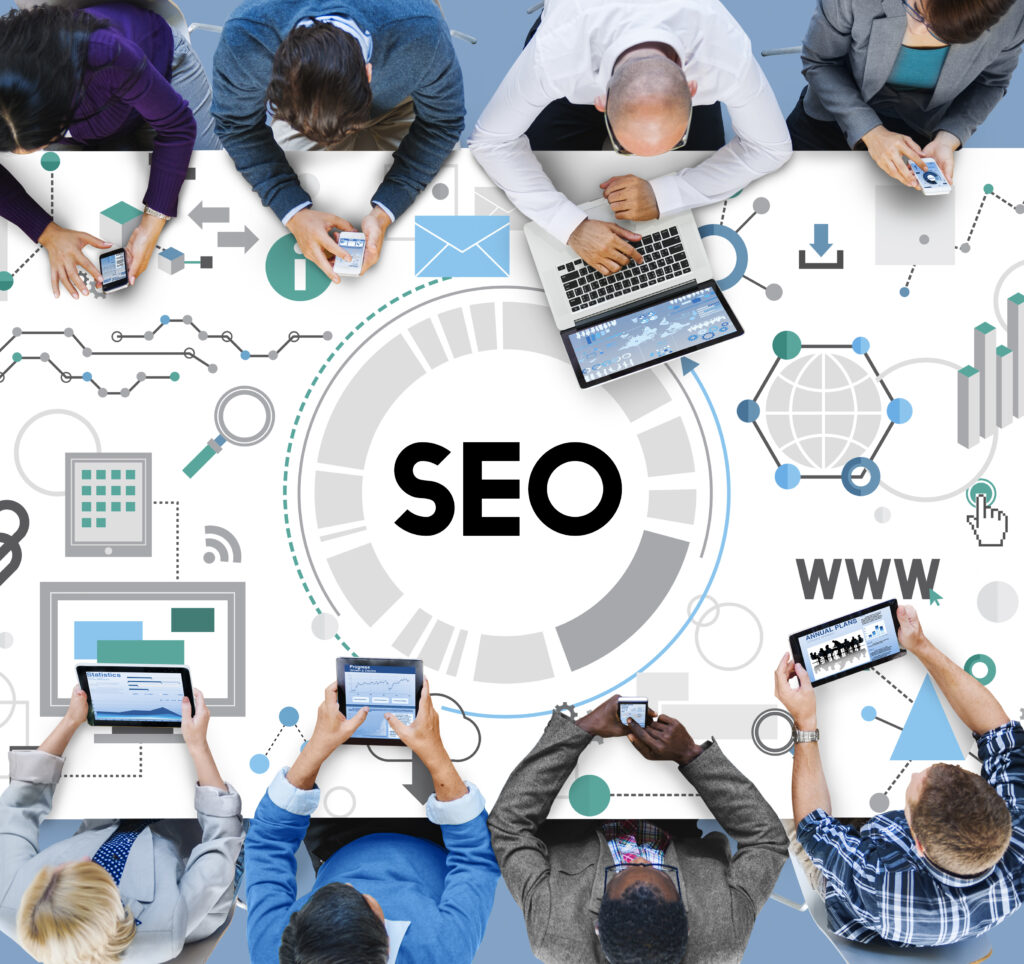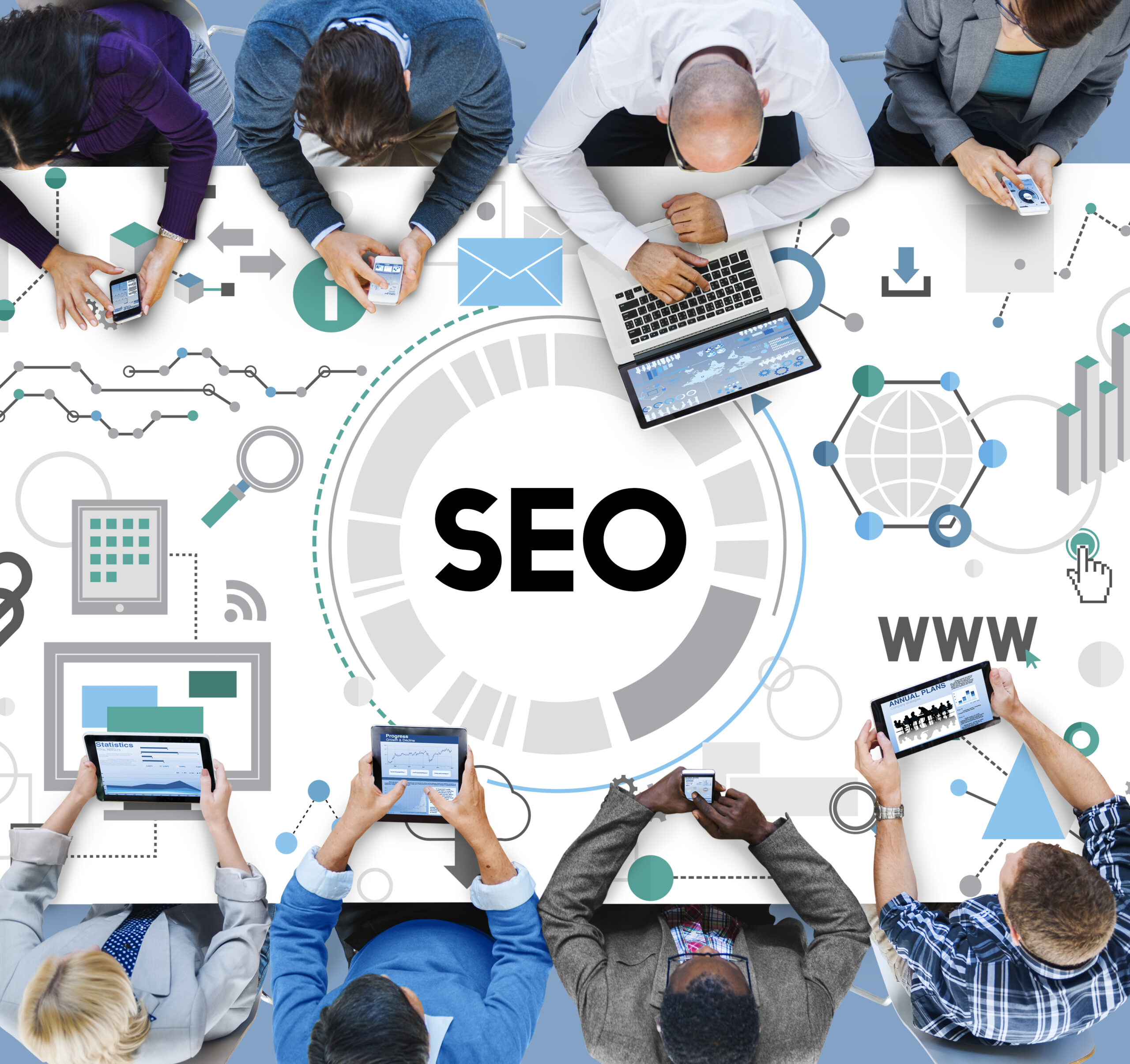
What is SEO?
SEO (Search Engine Optimization) It means configuring your website or a specific web page, for making the website or page more visible and prominent in organic (non-paid) search results in search engines such as Google and YouTube, which is considered the second largest search engine in the world after Google.
SEO generally affects online marketing strategies. Achieving a high ranking in search engine results increases the chances of bringing more visitors to the site and increasing brand awareness, which ultimately leads to increased profitability and success on the Internet.
How is SEO used in E-Marketing?
Through Promoting your project, services, and products and make your brand appear clearly to the largest number of search engine users. Ensure the spread of your brand identity and increase sales in a direct way.
In the process of marketing through search engines (SEO), the marketing expert prepares search engines by developing advertising campaigns that target specific keywords, and when those words are searched by people, those ads appear in the first search results, which contributes to increasing the success and spread of search engines your Brand.
What is the importance of E-Marketing?
1. Broad and global reach:
E-marketing gives access to a global audience without geographical boundaries, allowing companies to communicate with thousands or even millions of consumers anywhere in the world.
2. Cost saving:
E-marketing is considered an economical alternative to traditional marketing, as companies can achieve effective results at lower costs through the use of digital advertising methods.
3. Data and performance analysis:
E-marketing provides the ability to accurately analyze campaign data, which helps in understanding consumer interaction and effectively determining the performance of ads and campaigns.
4. Accurate guidance to the audience:
E-marketing allows precise targeting of the audience across many channels and social media, which helps direct campaigns towards the most interested groups.
5. Improve user experience:
E-marketing techniques contribute to improving the user experience on the web, whether by improving site content or providing targeted offers.
6. Increase interactivity:
E-marketing allows companies to interact directly with customers through comments, ratings, and reactions via social media.
7. Accurately measuring success:
The success of e-marketing campaigns can be measured accurately by monitoring and analyzing data, which contributes to improving future strategies.
8. Increase conversion opportunities:
Thanks to precise targeting and improved user experience, conversion chances can be increased and sales goals can be achieved.
9. 24/7 Marketing:
E-marketing allows companies to interact with the public around the clock without time restrictions, which continuously enhances digital presence.
10. Flexibility in updating and modification:
E-marketing campaigns can be modified quickly and effectively as market or customer needs change rapidly, providing great flexibility for businesses.
What are the types of E-Marketing?
There are several types of search E-Marketing, including:
• Paid ads on click.
• Unpaid (organic) advertising.
• Content marketing.
• Email marketing.
• Video marketing.
• Voice search marketing.
• Local marketing.
• Social networking marketing
What are the ways that SEO can impact your E-Marketing strategies?
There are several ways that SEO can impact your E-Marketing strategies:
1. Increase visibility and online presence:
Improving rankings in search engine results increases a brand’s visibility and online presence, which enhances company recognition.
2. Increase click through rate (CTR):
Website links that appear higher in search results often have a higher CTR, which increases the chances for visitors to engage with your content.
3. Improve user experience:
Elements that affect SEO optimization, such as loading speed and good site structure, contribute to improving the user experience and thus enhancing marketing effectiveness.
4. Increase trust and credibility:
Sites that appear on the first pages of search results appear more authoritative in the eyes of users, which increases the chances of engagement and conversion.
5. Target important keywords:
SEO optimization helps target specific keywords, ensuring that content is directed to the target audience and increases the chances of reaching them.
6. Improving the quality of content:
SEO promotes improving the quality of content to make it more attractive and valuable, which results in enhancing the effectiveness of marketing strategies.
7. Understanding audience orientation:
Improving SEO allows businesses to better understand the needs and trends of their audience, and thus improve marketing strategies to meet those needs.
8. Improve access to new markets:
Increasing rankings in search engines contributes to improving access to new markets and expanding the target audience.
9. Enhance linkage strategies:
High quality inbound links boost SEO, increase page influence in search results, and contribute to marketing strategies.
10. Boost Conversions:
Improving on-site behaviors through SEO can contribute to increasing your conversion rate and better achieving your marketing goals.
Finally, SEO has a great role at enhancing E-Marketing strategies by improving visibility and appeal to the target audience.
Visit us at: www. welo.org.uk
You can also read: https://welo.org.uk/remote-coding-bootcamps/

